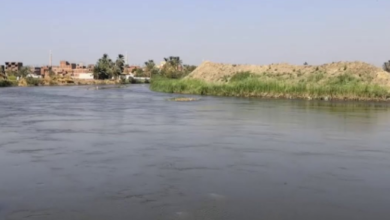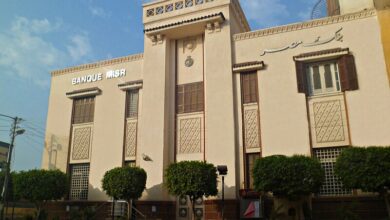As of yesterday, 23 candidates, who belong to different parties and political orientations, have applied to run for the presidency. Many now wonder who will people vote for and why, particularly after the takeover of Islamic parties, namely the Brotherhood’s Freedom and Justice Party (42 percent) and the Salafi Nour Party (24.2 percent), in the parliamentary elections that took place earlier this year.
Rural dwellers constitute a large proportion of Egyptian voters; the majority of which are illiterate and poor. In the 2011-2012 parliamentary elections, they appeared as strong supporters of the Islamic parties mentioned above.
Why do rural dwellers vote for Islamic parties? Do they vote through coercion or incentives? Do they differentiate between different religious groups — in that case the Muslim Brotherhood and the Salafis? Or do they just follow what their sheikhs dictate to them prior to the elections, or what people tell them in front of the electoral ballots? How come a few-months-old political party (Nour) gained half the seats acquired by the 80-year-old Brotherhood?
What I aim to present here, on the basis of ethnographic data from the 2011-2012 parliamentary elections in a village in Fayoum governorate, are some answers to these questions, in order to understand how Egypt’s rural dwellers make political choices.
My overall argument is that when people choose to vote for an Islamic political party, they base their positions on a complex web of relations with power, authority and indeed, religiosity. I highlight some of the common arguments that my interlocutors articulated when they compared between the Freedom and Justice Party and the Salafi Nour Party — the only two visible groups in the village.
But let me first say that many of my interlocutors (and I would say many of the concerned Egyptian population) perceived the elections as a confusing process. The process was partially clear to many only few days before the voting day. They had to choose in a very short time candidates who would help them reclaim short- and long-term rights, from which they were deprived of over the last 40 years. And because programs were hardly discussed in the village, voters were choosing between candidates as individuals, and in the Brotherhood’s case, part of a political hierarchy that shaped the group’s dealings in the village. Furthermore, when political affiliations were discussed, they were in reference to the Islamic movements, whether Salafis and Muslim Brotherhood (Ikhwan), rather than political parties: Nour and the Freedom and Justice Party.
Despite the common perception that Salafis are strict followers of Sharia compared to the Muslim Brotherhood, many of my research participants often talked about Salafis as religiously less strict than the Ikhwan. From the work of Ikwani leaders in the village, the villagers have noticed the strict hierarchy that informs the work of the Brotherhood members on the ground. In other words, the villagers understood the Brotherhood’s adherence to the dictates of the Guidance Bureau, or the Murshid, as an orthodoxy that made the Brotherhood stricter than the Salafis. They often said to me: “How come Ikhwan grassroot leaders all agree on the same things?” An incident that they often referred to is the insistence of Muslim Brotherhood members to force people to pray outside of a mosque, not build by the Brotherhood, during the Eid al-Fitr prayer last September.
Salafis, on the other hand, are seen as religiously flexible. “Aren’t we all Salafis?” many Nour supporters often repeated to me. For them, Salafis represent a religious understanding that seeks to closely follow the times of the Prophet and his followers — the Prophet was married to a Coptic woman, his neighbors were Jews, he dealt with each situation on a case-by-case basis, hence the perception that Salafis are, believe it or not, lenient. This was reflected on the ground; Salafis, at least in the village where I worked, appear to be more laid-back compared to the Ikhwan, and hence, more sensitive and open to the local context.
Class was also a factor that often worked against the Brotherhood’s candidates. Due to being the most educated cluster, Ikhwani leaders are strongly present in professional occupations in village-level bureaucracies; they are the teachers, the lawyers, the engineers, and more importantly the personnel of the most funded NGO: Al-Jam’eya al-Shar’eya. Ikhwan leaders often use their positions, particularly in the NGO, to promote the Freedom and Justice party through coercing the poorest of the village into long-term charity and debt relations; they fund kidney dialysis operations, pay monthly stipends for orphan children, and distribute money and goods for ad-hoc lists that they prepare once they get orders from their leaders in Cairo.
Although these services seem necessary in the absence of a state-service provider, many rural dwellers (even ones who receive support from the NGO) see this relationship of indebtedness to the NGO as unhealthy. This informs why many villagers are weary of voting for the Ikhwan’s party. “We need a government that recognizes our rights as citizens, not as recipients of aid! We need people that would help us get our stolen rights. If the Muslim Brotherhood come to power, they will be both the mediators and the government.”
Although Salafis undertake charity activities, their work is more discrete, and their visible focus is on preaching (da’wa), which is often seen as an apolitical practice that does not particularly aim to recruit voters.
Beside the NGO work, Ikhwani leaders in the village often come up with magical solutions to solve problems that the state fails to address through utilizing the resources available through the intricate web of Ikhwani followers in the village and elsewhere, besides using their official positions in the state to process paperwork. For example, they have introduced tap water to the village’s preparatory school, and have provided after school lessons to students who fail to read and write, even after several years of formal schooling. Coming up with solutions is a plus for party leaders, yet puts them under suspicion. Many of my research participants became quite aware that the country is resourceful, so what they actually want is a fair distribution of resources, rather than unsustainable solutions offered by the Ikhwan leaders, in this case the elites of the village, when and if they want.
Many candidates on Nour’s list in Fayoum were mosque preachers. This sole role in the village community often put them on an equal footing with their voters. It is also worth mentioning that many of those who voted for Salafis did so not out of religious adherence to the Salafi orthodoxy, but because they did not want to support the Ikhwan and could not find alternatives but the “harmless” Salafis.
Finally, agrarian policies were implicitly a matter of concern for many of my interlocutors prior to the elections. The Brotherhood members were great supporters of the liberalization of the agrarian sector promoted by Mubarak, particularly Law 92 in the year 1996, which led one million farmers to lose secure tenancy and their main source of food security. After the revolution, many farmers tried to re-acquire some rights that they had lost with the liberalization policy. They started to protest the law through going on strikes in front of government offices in Fayoum, and later in front of Parliament in Cairo. The main Brotherhood MP from the village promised to work on their file once he won. This not only did not happen, but also the MP turned his back on them when he saw them protesting in front of Parliament. This, for them, was a sign of great deception. Again, here, Salafi leaders won the villagers’ trust. The Salafi MP met with the villagers and took their file to Parliament. Even more, one of the Salafi grassroots leaders is the head of the small farmers syndicate.
What I tried to do here is reflect on some elements that, during my fieldwork, shaped the ways in which voters talked about and favored political parties over others. As Egypt prepares for its first presidential elections after Mubarak, one cannot predict results, but we can be sure that the Egyptian population, particularly its most marginalized sectors, is far from being gullible. Rural dwellers negotiate in politics and constantly revise their views on parties and candidates with a dream of a better future, like everybody else.
Yasmine Moataz Ahmed is a PhD candidate specializing in social anthropology at Cambridge University.




